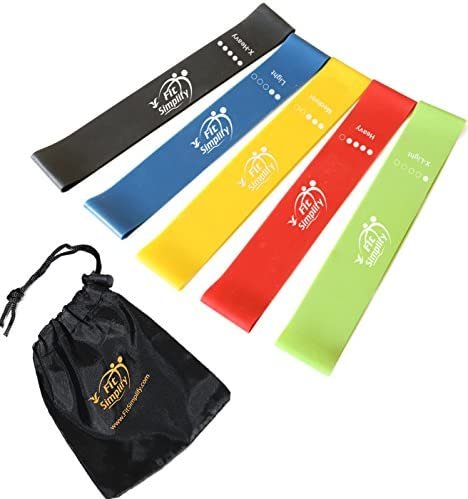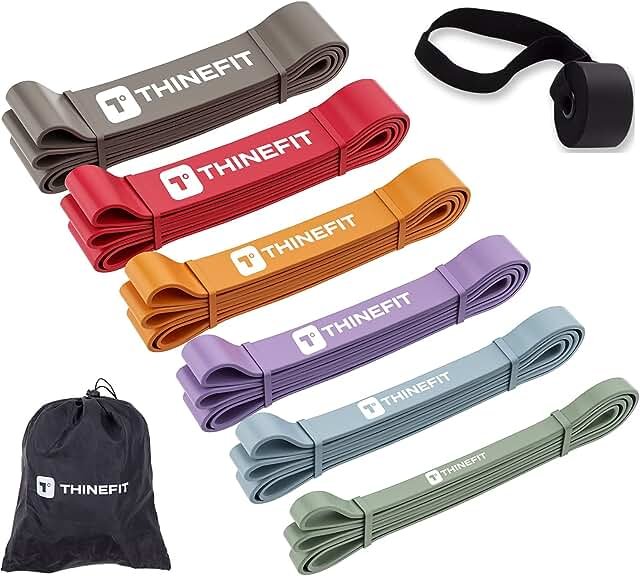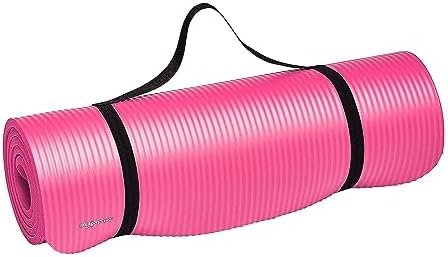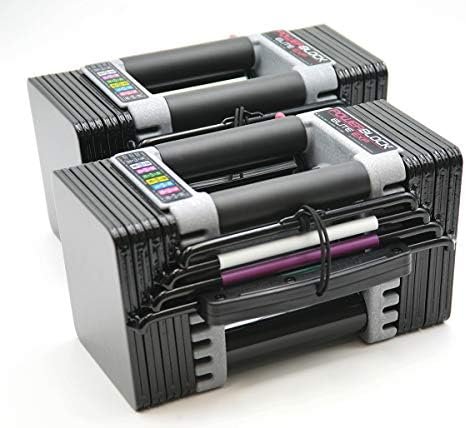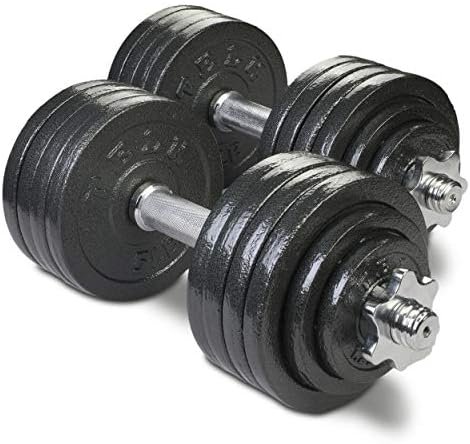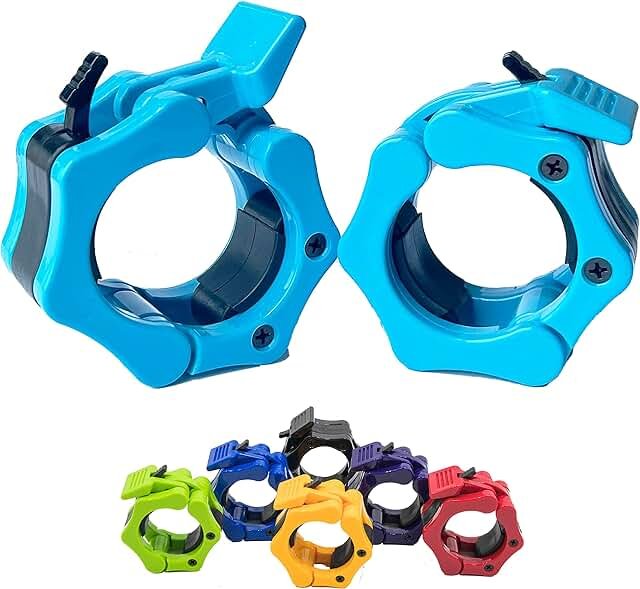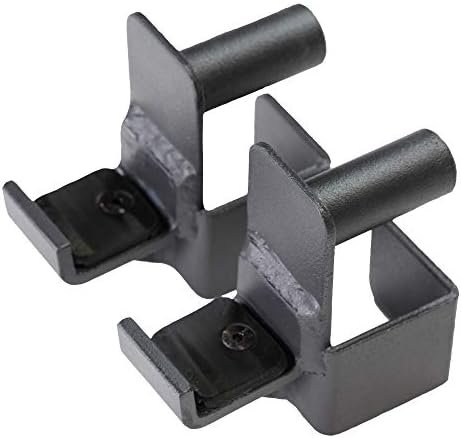Episode 7: Tips for Building a Home Gym
Build your home gym one step at a time with my equipment suggestions. Start with resistance bands and progress to weights over time.
I don’t know about you, but I’m not a big fan of big-box gyms. They seem to often be crowded and noisy—whereas I prefer to work out on my own in a quiet space. For this reason, a few years ago I turned my living room into a home gym and filled it with the equipment that I love to use in my workouts.
In this podcast episode, I give tips to help you build your own home gym as a beginner. You don’t have to go all-out like me and get a squat rack, barbell, weights, and cardio equipment immediately. In the beginning of your fitness journey, you can start building strength at home with relatively inexpensive equipment that doesn’t take as much space. Check out the episode and equipment list below!
Resistance Bands
The first thing I recommend you get for your home gym is resistance bands. These are relatively inexpensive and don’t take up much space.
if you don’t have much space available in your home, bands are a great option. You can just store them away in a drawer when you’re not using them—so you don’t need a dedicated “gym” room or area in your home.
Bands are also a great option if you’re a beginner to fitness. They provide a relatively safe way to learn resistance training exercise technique while building foundational strength.
Intermediate and advanced exercisers can also benefit from using bands—especially for muscle-building and strength accessory exercises.
There are 3 main types of resistance bands I recommend you stock up on: mini bands, tube bands, and superbands.
Mini Bands (Loop Bands)
These small, loop-shaped bands are great for exercises like monster walks, banded squats, and my favorite rear delt exercise—the single-arm high row.
I recommend getting a set that is graded for different resistance levels so that you can track your progress over time. Personally, I almost always recommend the Fit Simplify 5-pack of mini bands to start with. These bands are rated for different resistance levels, which allows you to better track your progress as you get stronger.
Tube Bands (Handle Bands)
Tube bands are great for many upper-body exercises. You can anchor the band to a door or hook in the wall for exercises like lat rows, chest presses, and pull-downs.
There are many brands and varieties of tube bands, however I recommend getting a set that is graded for different resistance levels. For instance, the set that I use is labeled from lightest to heaviest according to weight equivalence (10lb, 20lb, 30lb, etc). This will allow you to track your progress as you get stronger as over time you’ll need to use heavier bands.
Superbands (Monster Bands)
Superbands are long loop-shaped bands that are great for a variety of exercises like kickbacks, good mornings, deadlifts, and mobility exercises. You can also use them as support for pullups and other hanging exercises.
As with the other bands, I recommend getting a variety set of superbands that are rated for different levels of resistance. Some exercises you’ll need lighter bands whereas others will require heavier bands.
Floor Mats
Another great piece of equipment to include in your beginning home gym is an exercise mat. I recommend getting two types of exercise mats. First, you should have one that is thick and squishy to give some cushion to your body while doing exercises on the floor like crunches, bridges, and planks. Second, you should also have a thinner yoga mat that will provide some grip to your hands and feet—especially if you plan to do standing balancing exercises or work out barefoot.
Dumbbells
Dumbbells are my go-to recommendation for beginners to weight training. These handheld weights allow you to perform various exercises for your upper body and lower body, like dumbbell chest presses, rows, lateral raises, goblet squats, Romanian deadlifts, and weighted lunges.
For many exercisers, dumbbells are a staple equipment item that allows you to target different muscle groups for bodybuilding and strength accessories effectively.
I suggest starting your home gym with an adjustable set of dumbbells like power blocks or spin-lock weights. These don’t take up much room and will allow you to progressively overload your muscles with heavier weight over time.
Personally, I use spin-lock dumbbells, but I also have several clients who use some variation of powerblocks. The spin-lock weights are a little more time-consuming to adjust, but they do tend to be more solid than powerblocks.
Bench
It’s also a good idea to invest in a sturdy, adjustable bench. This allows you to perform exercises like chest presses, chest flys, and box squats.
I always recommend that my clients get a bench for their home gym that can lay flat or go into an incline or decline. This will give you more options for variations of exercises that will allow you to target different muscle groups.
Barbells & Plates
As you get more into intermediate and advanced training, having a good-quality barbell will be important for making gains in your home gym. The bands and dumbbells alone should provide enough resistance for you as a beginner to build muscle and get stronger for the first 3-6 months.
Eventually though, you’ll need more resistance to keep your muscles challenged. Barbells like the one featured below allow you to add significantly more weight to exercises by adding plates to the bar. You can use the barbell for exercises like barbell deadlifts, back squats, and bench press.
When you’re ready to get a bar, I recommend investing in a few sets of barbell plates as well. Start with 2 of each: 2.5lb, 5lb, 10lb, 25lb, and 45lb plates. This will allow you to progressively overload your exercises by adding more weight to your exercises up to 220lb total.
Make sure to also invest in a set of plate collars (also called locks or clamps). These secure the plates onto the barbell to keep your lifts safe and sturdy. I use a variety of collars, including plastic clip-ons as well as stainless steel weighted ones.
Squat Rack/Power Rack
Some barbell exercises (like squats and bench press) are much easier to do if you have a squat rack or power rack to hold the weight between sets. The Fitness Reality squat rack is a surprisingly inexpensive and good-quality rack that can be ordered from Amazon. Make sure to also get a set of J Hooks to hold the weight between your sets.
ABOUT JAYD HARRISON
Jayd Harrison (Jaydigains) is a personal trainer and content creator. She helps people to build muscle, burn fat, and clean up their diets with her online coaching programs and social media content. Check out some of Jayd’s coaching videos on Youtube, or join Jayd live on Twitch and follow on social media:
Sign up for updates ✉️
Sign up to get notified whenever new episodes drop. Opt in for more tips on training, fat loss, and nutrition by filling out the form below:
Your privacy is important to me! I will never share your information with any third party. Unsubscribe from the email list at any time.
